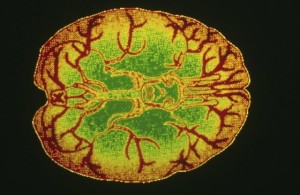How Do Comas Affect The Brain
A coma is a state of unconsciousness in which the brain is alive but functioning at its lowest level of alertness. Normally the brain transmits continuous chemical signals from the cerebral cortex (the outer layer) to the brainstem (which is attached to the spinal cord). The cerebral cortex is responsible for high-level thoughts such as feelings, while the brainstem regulates automatic functions like the heart pumping.
In order to ‘talk’ to each other signals are channelled between the brainstem and the cerebral cortex via a neural pathway called the reticular activating system (RAS). The RAS is like the brain’s light-switch – turn it off and you switch off consciousness. When functioning normally the RAS sends messages from an area called the reticular formation, through the thalamus (a mass of neurons at the top of the brainstem) to the cerebral cortex.
During sleep the neurons in the RAS fire at a lower rate but are still active. But in a coma the activity is too minimal for the cortex to process information, leaving the person without awareness.
A coma occurs when the RAS is disrupted by brain injury or illness. Meningitis, for example, can cause swelling in the brain which presses on blood vessels and blocks oxygen to vital areas.
Doctors grade a patient’s degree of consciousness with the Glasgow Coma Scale (GCS), measuring eye opening, as well as verbal and motor responses. The lower the score, the deeper the coma.
A person in a coma may die, recover or transition into a vegetative state. A person in a vegetative state has more lower-brain function (actions like breathing) and slightly more upper brainstem functions such as being able to open their eyes. A coma is not the same as ‘locked-in syndrome’ where the person is fully conscious but paralysed.
Coming out of a coma
 Recovery depends on the cause of the coma. Infection-induced comas may reverse with antibiotics, while excess pressure may resolve by draining fluid. Comas rarely last more than two to four weeks, but recovery is gradual. Patients may be alert for only a few minutes, progressing to longer periods.
Recovery depends on the cause of the coma. Infection-induced comas may reverse with antibiotics, while excess pressure may resolve by draining fluid. Comas rarely last more than two to four weeks, but recovery is gradual. Patients may be alert for only a few minutes, progressing to longer periods.
Their outcome relates to their Glasgow Coma Scale result -those who scored lowest in the first 24 hours will likely die or remain in a vegetative state, while those who score at the higher end may make a full recovery. Coma survival rates are around 50 per cent.
After a coma the patient may only recall memories after coming to and will usually wake in a profound state of confusion, not knowing how they got there. However, they tend to regain brain function gradually, often with the help of physiotherapy and occupational therapy to relearn basic skills like walking, talking and eating.
